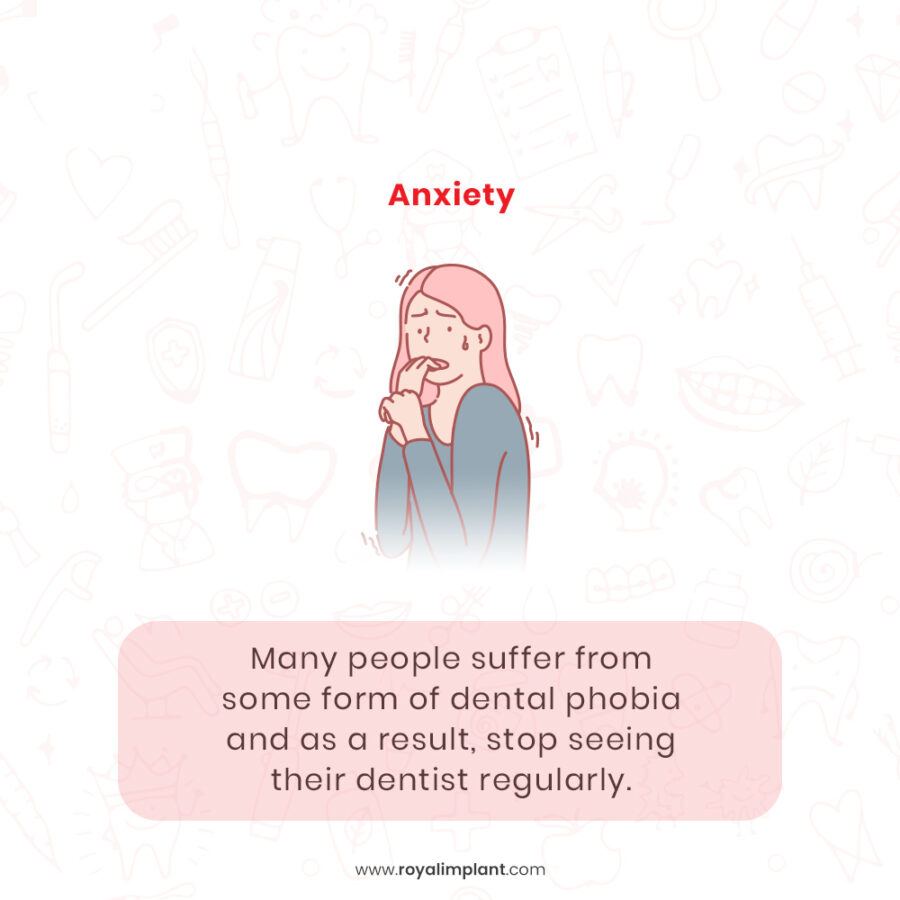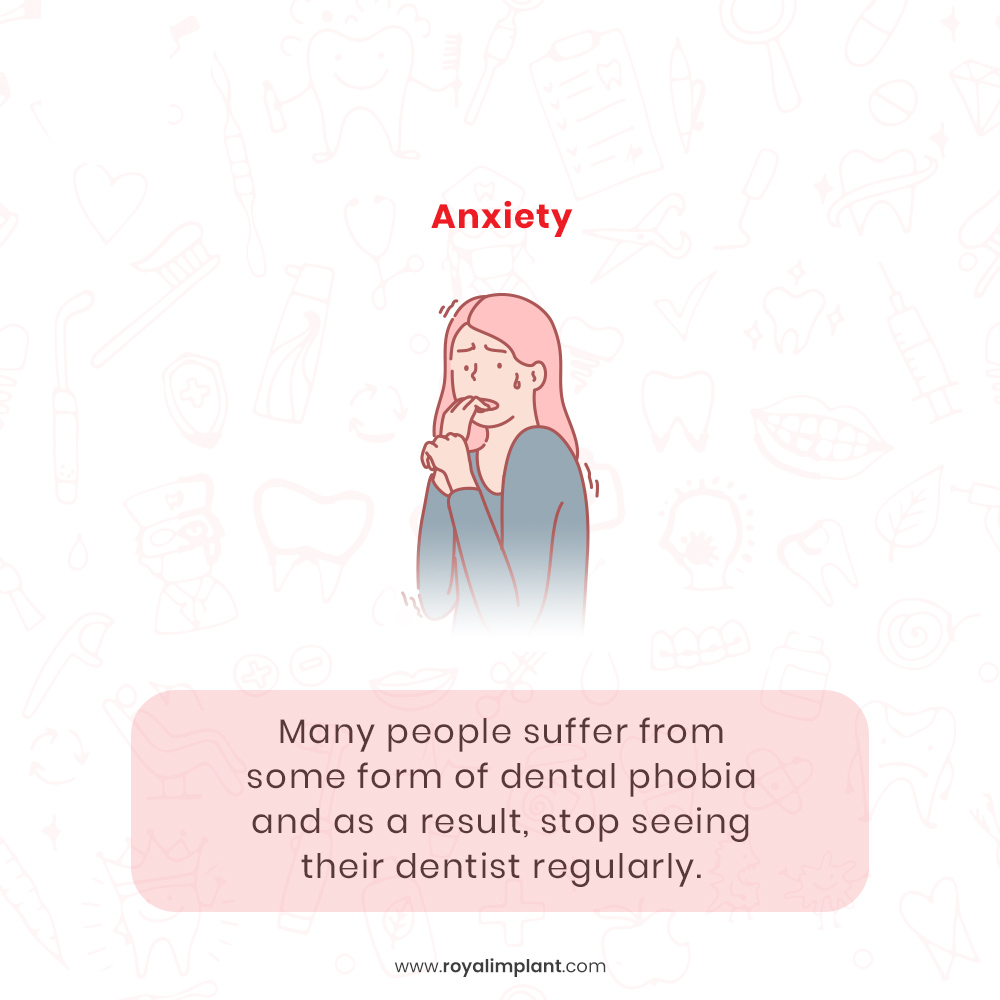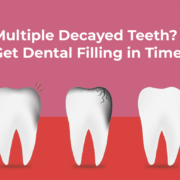When you visit a dentist, anxiety can be a real issue. After all, there are few things scarier than the thought of needles or drills coming near your teeth. Even if you have visited a dentist before and know that everything is going to be fine in the end, that doesn’t make it any easier at the moment. As we get older, our dental needs also change. Adult dentistry is usually about prevention keeping your teeth healthy and keeping them for as long as possible rather than fixing damage from broken fallacies or cavities. However, this may not always be the case for everyone. Whether you experience anxiety frequently with dental care or it’s just something new for you, there are ways to manage it better.
Tips for managing anxiety during dental care
If you’re experiencing anxiety around dental care, there are a few things you can do to try and manage your anxiety. One thing to keep in mind is that you have control over how much dental care you get. If you feel like you’re having anxiety around a certain procedure, you have the right to skip it and come back when you feel like you have fewer worries. Keeping your appointments on schedule can also be helpful.

Being prepared for dental care, as much as possible is a great way to reduce anxiety. This means knowing what you are going to do, how long it will take, and any aftercare you’ll need. You can also try meditation, yoga, massage therapy, or other stress-reducing activities a few weeks before your appointment. You’ll likely feel more relaxed and less anxious when the day comes to visit the dentist.
Signs and symptoms of dental anxiety
Some anxious people will routinely miss or avoid dental appointments and may find it difficult to undergo dental treatment regardless of whether it is simple or complex.
- Sweating
- Racing heartbeat (tachycardia) or palpitations
- Low blood pressure and possible fainting (syncope)

- Visible distress, crying, or signs of panic
- Withdrawal, or using humor or aggression to mask anxiety.
Breathing and grounding techniques | Dental Anxiety
When you’re feeling anxious and overwhelmed, it can be easy to fall into a negative downward spiral. You might find yourself worrying more than you should, stressing about things you can’t control, or just feeling generally anxious and upset. While it can be difficult to just “switch off” your thoughts, there are some simple breathing and grounding techniques that can help you start to calm down. Breathing exercises, in particular, can be a great way to switch off the stress response and return to a calmer state of mind.
Deep breathing: Sit or lie down in a quiet place with your eyes closed. Take a few deep breaths, inhaling and exhaling slowly. As you do this, focus on each breath and push all other thoughts out of your mind.

Progressive relaxation: Another great technique for switching off the stress response is progressive relaxation. As the name suggests, you start with tense muscles, relax them, and then move on to your entire body, including your mind.
Visualization and mindfulness: Visualization and mindfulness can both be great for stress reduction. A visualization is a great tool for coping with anxiety, as it helps you shift your thoughts away from negative feelings and toward positive ones. Mindfulness is a great technique for letting go of negative thoughts and emotions.
Who can be affected by dental anxiety?
Dental anxiety is common and can affect people of any age. Children who have had bad dental experiences in most cases can overcome their fear if the situation is managed well and they are well cared for and supported during further dental visits. Adults who are anxious about dental care tend to remain anxious throughout life. Many anxious dental patients can find a dentist who is sympathetic to their situation, so they are able to cope with going to the dentist.
Distraction methods | Dental anxiety
If you find that you’re having too many negative thoughts while you’re waiting for dental care, you can also try to distract yourself. Reading a book, watching TV, listening to music, or engaging in another activity can help you clear your mind. If you’re visiting the dentist because you’re having work done, you can also try to focus on the sound of the drill or the feeling of the needle.

These sensations can be almost hypnotic, and they can help ground you in the present and make you less aware of the pain you might otherwise be feeling. If you’re nervous about getting an X-ray, you can also try to distract yourself by focusing on something else. You can count, focus on your breathing, or try to find a pattern in the dots on the image.
Helping yourself with medication
If you absolutely can’t deal with your anxiety and dental care without medication, that’s absolutely fine. Not everyone can calm themselves down without a bit of help, and that’s perfectly fine. Dr. Fara Brancatisano There is a few different types of medication that you can use in the dental office to help calm your nerves. They are usually provided in the form of a small pill that you swallow. Nitrous oxide, also known as laughing gas, is a common choice.

This is an inhaled gas that will make you feel relaxed and have a sense of euphoria. You’ll also likely feel lightheaded, which can sometimes be nice when you’re anxious because it helps you to calm down and focus on the present rather than your fears. Another option is oral conscious sedation, which is the process of giving you a pill that will put you in a relaxed, dreamy state. This can be helpful if you’re very anxious about dental work and likely to protest or be difficult to work with.
A final word
If you’re feeling anxious about dental care, remember that it’s normal. Try to relax, take some deep breaths, and know that everything will be fine in the end. Your dental team is there to help you and make you as comfortable as possible. They’re also there to help you get the dental care you need, even if it means making it as painless as possible. If you still find yourself feeling anxious, ask your dentist and/or dental assistant for tips on how to calm your nerves. Hopefully, by following these tips and strategies, you will be able to overcome your anxiety. You deserve to live a life without dental anxiety and with a bright, healthy smile!






